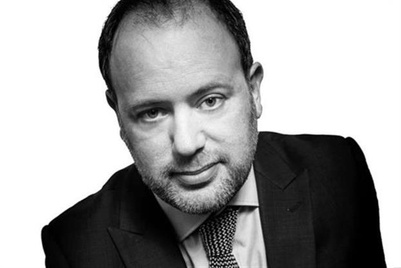
The world has become accustomed to bashing Japan’s economic performance, but there is once again cause for optimism. The economy has expanded for six quarters in a row, most recently posting an annualised growth rate of 4 percent. The government cites increased private consumption (up 5.3 percent year-on-year) as the driver.
Yet a global cloud casts shadows. Usually a trusty barometer of market conditions, Dentsu this month cut its revenue and profit forecasts for the year, pointing to the reassessment of global marketing spend by clients in sectors such as consumer packaged goods (CPG). The FMCG sector alone accounts for around 10 percent of global revenue for large ad agency networks.
P&G’s global adspend recently hit an 11-year low after the company pulled back on digital, falling 1.7 percent to US$7.1 billion. Unilever also plans to halve the number of agencies it uses and slash ad production by 30 percent. P&G is mostly worried about a lack of transparency and brand safety issues in the digital space. Both companies also want to become more efficient in their marketing activities and use of agencies.
CPG companies are struggling globally, says Greg Paull, principal of consultancy R3. Paull notes that 90 of the top 100 CPG brands lost market share last year. He points to an “Amazonification of the old ecosystem” which means consumers everywhere either want to pay less or receive something “special”. The rapid growth of ecommerce in Japan has made brand loyalty a major issue in the market. “With depleted revenues, marketing is often one of the first costs to be cut,” Paull says.
That may not happen in Japan though—at least yet. Dentsu emphasised the impact of client spending cuts on its international—rather than domestic—business. In its recent H1 financial report, ADK showed a year-on-year decrease in cosmetics and toiletry client billings, but respective increases of 26 percent and 8 percent in household goods and food sector spending.
At a conference that Campaign hosted with The Trade Desk in Tokyo in July, Aco Yamagata, a media director at Unilever in Tokyo, expressed doubt over the benefits of investing heavily in growing areas like programmatic technology. She speculated that client spending on programmatic in Japan is likely to experience a temporary decline due to factors such as a lack of expertise among marketers and difficulty demonstrating ROI. But she says Unilever does not plan to reduce overall marketing spend. “Our business is good and stable, so there is no need to decrease our investment,” she says, but adds that “premiumisation and customisation may be the direction we need to go.”
Noriyuki Endo, a spokesperson for P&G in Japan, was not able to comment on spending plans. But he says Japan’s recent economic growth “affirms our view that there are growth opportunities in Japan”. Again, as Paull indicated, the future appears to be in offering premium products. Endo says P&G expects the country’s discerning consumers to continue to look for innovation and better solutions to their daily chores, and be willing to pay a premium for it.
“We continue to observe this reality in how consumer goods categories like baby diapers and laundry are still growing despite decreasing trends in population,” Endo notes.
Consumer research offers further encouragement. Nielsen’s latest consumer confidence index showed that while confidence rose in 9 out of 14 markets in Asia-Pacific, Japan saw one of the biggest jumps, with confidence up 13 points. Globally, Japan ranks 33rd out of 63 countries with a confidence score of 87 (still below the global average of 104).
Still, it seems wise to be cautious. In a weekly analysis of Japan economics dated 18 August, Deutsche Bank suggests things may have peaked. It predicts that government work style reforms will stifle economic growth, with the rate slowing to an annualised 0.7 percent in Q3. It sees private consumption growth falling from 1.4 percent in 2017 to 0.6 percent in 2018.
This story also appears in Campaign Japan: 消費財ブランドは、国内市場に前向き






.jpg&h=268&w=401&q=100&v=20250320&c=1)


